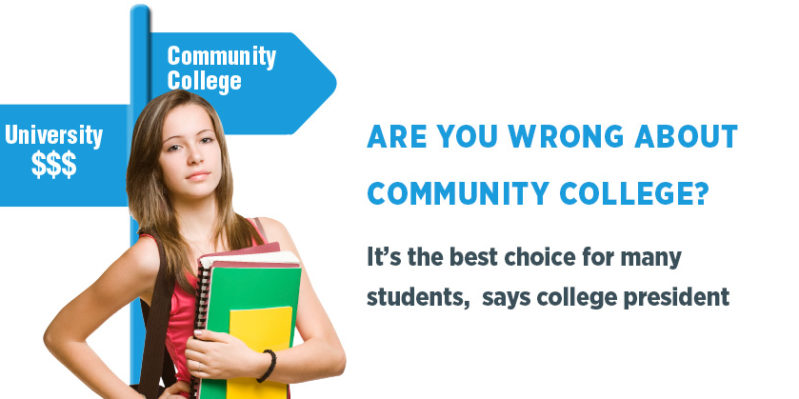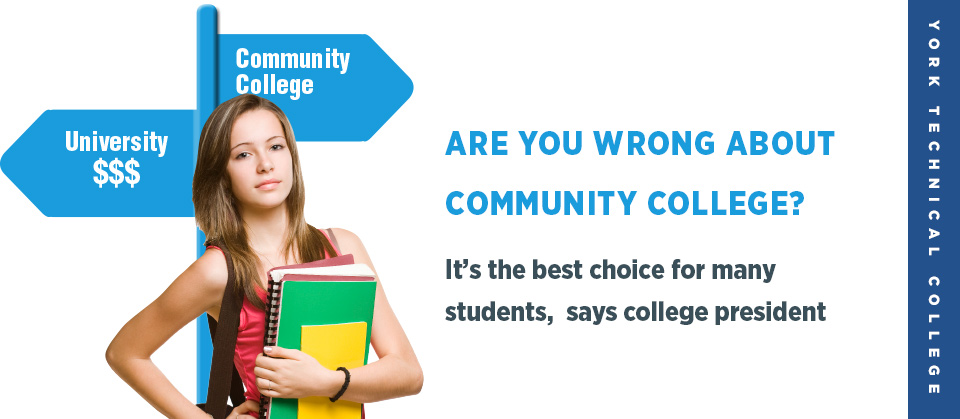
It’s the best choice for many students, says college president
There is no shortage of misconceptions about community and technical colleges. But with practical advice and a straightforward style, Thomas J. Snyder, president of Indiana’s Ivy Tech Community College system and author of The Community College Career Track, is exactly the right guy to clear them up.
Q. What motivated you to write your book?
The percentage of Americans with a college education is falling behind many other countries. I see two invisible barriers to college attainment. One, the cost of a traditional college education has increased beyond the means of many American families. Two, there is confusion about the definition of college. Many people think it only means a four-year education. I want to show that there are other options.
Q. What is the biggest misconception about college?
Most people no longer feel that they have to drive an expensive car or live in a big house to be fulfilled, but parents of modest means still believe that they have to go into thousands of dollars of debt to give their kids a college education. Not every four-year degree is a good investment.
Q. What should high school students know about two-year colleges?
To be fair to their parents, students should know the cost of colleges. It’s not uncommon to end up owing $25,000 to $50,000 to pay for a traditional four-year college. Paying more doesn’t guarantee a better education.
Not only do community and technical colleges cost less, most offer dual enrollment, so students can earn college credit at little to no cost while still in high school.
Q. What should adults returning
to college know?
When the goal is a better paying job quickly, recent data shows that some one-year certificates can out-earn associate degrees about 47 percent of the time and bachelor’s degrees about 21 percent of the time.
Q. What do you think college will be like in 10 or 20 years?
I think cost is going to prevent big research universities from growing much more, but technical and community colleges are better organized to handle growth. A combination of trends such as online and hybrid courses, opportunities to earn college credit in high school and new programs offering four-year degrees at community colleges will change the way we
attend college.
The Community College Career Track
If you’ve ever considered yourself too smart, too stupid, too old, too young, too rich or too poor to attend a technical or community college, this book is for you.
With The Community College Career Track, Ivy Tech president, Thomas J. Snyder, explains how to maximize the value of a two-year college education, succeed as a student and prepare for transfer or a career. With his advice you’ll understand how to…
Make the most of your tuition dollar: Two-year college tuition is much lower than most four-year colleges, allowing many students to get the first two years of their college education debt free. For low-income students, federal financial aid, scholarships or veterans’ benefits can cover nearly all educational expenses.
Choose the right career path: Many technical and community college certificates and associate degrees lead to good jobs without four years of education. A number of these positions pay even better than bachelor’s degrees. If a four-year degree is a must have, Snyder describes how a little planning can ensure a seamless transition from technical college to university.
Succeed academically: Technical college is college. Researchers have found no difference in the quality of instruction between two-year colleges and four-year institutions. Academic success requires hard work and commitment. While unprepared students may have to add a remedial class or two to catch up, all students can expect a high-quality
education.

